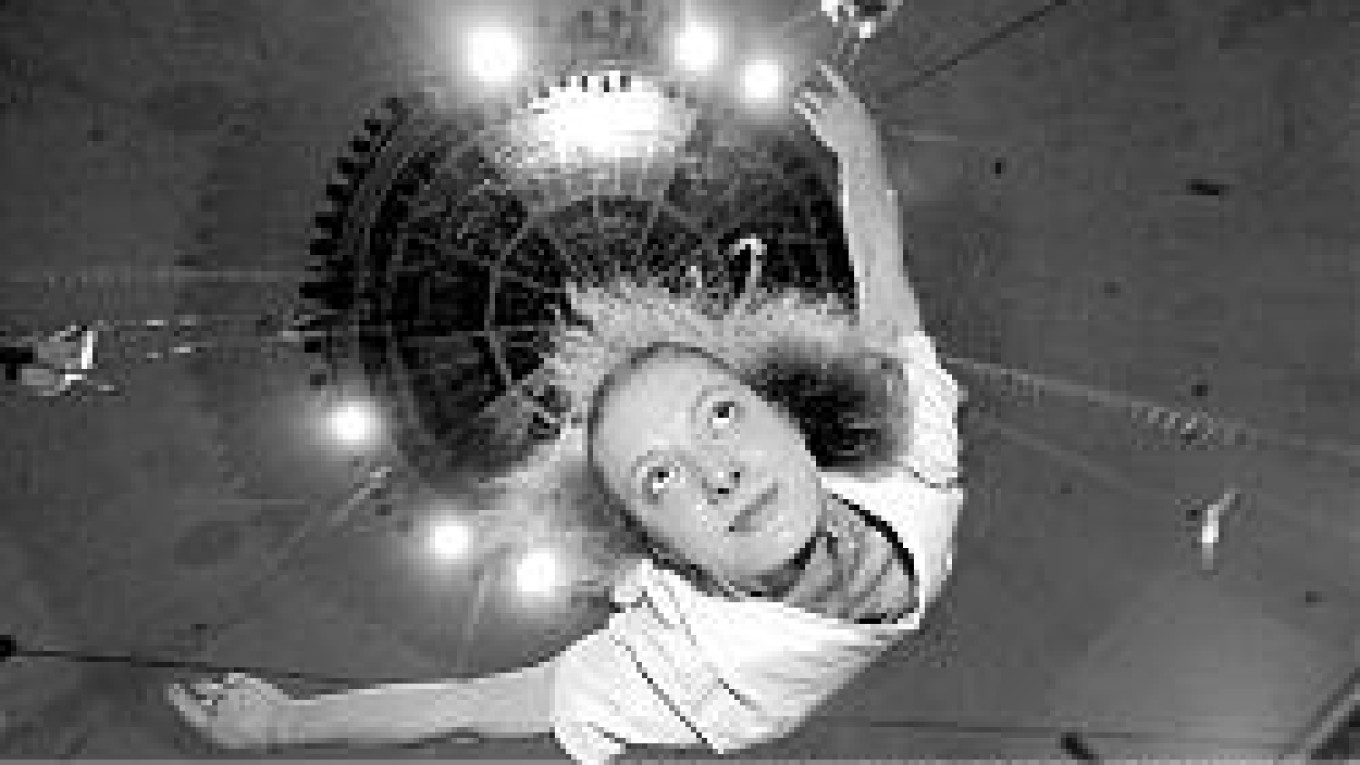Anatoly Gurov is good at that sort of thing after a quarter of a century with the Moscow Circus, an institution rooted in tsarist Russia that achieved fame in Soviet times.
"Adults are different. But the children are the same everywhere in the world," the clown said after a recent show in Singapore.
The big top has been packed day after day for three months. An estimated 1 million people, about a quarter of Singapore's population, have seen the circus since the first show in the city-state in 1990, organizers say.
The Moscow Circus became a great Soviet institution after Vladimir Lenin hailed circuses as one of the most important arts of the people.
The circus has faced many challenges since the Soviet Union crumbled 10 years ago but has managed to transform itself into a multinational group of performers and an international business.
At its heart are performers like Gurov.
He says he joined because he liked to work with children. He plans to start teaching his 4-year-old daughter the craft, beginning with juggling and horse riding.
As a young man, he spent four years at Moscow's School of Circus and Variety Artists, which was founded in 1926 and draws students from around the world.
Gurov says he uses "a golden magic key" to unlock audiences' hearts, but it is not always easy to please them, particularly in places with very different cultures.
"Had I known that it was so difficult, I would have chosen another profession ?€” maybe a truck driver," he said.
Ringmaster Alexander Frisch says he has to spend plenty of time out on the streets in a new city ?€” observing, talking and playing with people ?€” to understand what he calls their special local "emotion."
The troupe numbers 84 performers, including nine Australians, two Chinese and two Norwegians.
But this time it brought along none of its big animal acts, concentrating instead on jugglers, acrobats, magicians, high-wire artists and clowns.
The move back to human acts is now a global theme, influenced by such spectacular international shows as Cirque du Soleil, which mixes modern technique with much older performing arts drawn from medieval and Renaissance traditions.
The Moscow Circus boasts a history stretching back to Russia's Nikulin circus, set up in 1880. The show reflects a mix of old and modern.
Two contortionist devils with suggestive fur loincloths ?€” looking a lot like imps from a 19th-century storybook ?€” amuse the audience as they jump out of a wooden barrel and dance with a huge fork.
Foot jugglers in leather jackets on motor bikes toss youths into the air to heavy metal music.
A magician, fitted out like a refugee from the fantasy film "The Matrix," makes women and large cats vanish into thin air.
The circus shows no scars from the financial struggles it faced, like other state-sponsored organizations, after the collapse of the Soviet Union.
Some say the proud menagerie of the circus had been reduced to a few drugged monkeys and slack-skin ponies during the early 1990s.
"Money is scarce for all government bodies. But we have not seen any impact on traditions or qualities. In some years, the circus gets 5,000 applicants," said tour director Greg Hall, who has been with the circus for the last 35 years.
Local artists say they prefer to work abroad, though they are not necessarily paid more when they do.
The artists say people do not have the means, or time, for fun as the country goes through wrenching transformation.
"It is very hard, very difficult to work here as a circus," said another member who declined to be named. "It starts with the problem of selling tickets. People have all kinds of difficulties."
Frisch, the ringmaster, said he often wondered what his colleagues think behind their made-up faces.
"The life in the circus passes very quick. How long can you fly on the trapeze? How long can you make five somersaults?" he said. "It is a tragedy, particularly for women."
Frisch, who has spent more than 21 years with the circus, also lamented the loss of some talent and traditions following the breakup of the Soviet Union.
The circus can no longer easily secure talent from the 15 nations of the old bloc.
Previously, it could count on stunning horse riders from Chechnya, jugglers from Ukraine or elephant trainers from Latvia.
"We lost for the circus a very good family. It's very sad," Frisch said. "Now many young performers come from sports."
But like others in the circus, Frisch is also optimistic.
"Now we start writing a new story of the Moscow circus. We get Australians, Germans, Chinese. ?€¦ Maybe we make one big world circus in the future, who knows?" he said. "Because it's circus, it's very flexible."
A Message from The Moscow Times:
Dear readers,
We are facing unprecedented challenges. Russia's Prosecutor General's Office has designated The Moscow Times as an "undesirable" organization, criminalizing our work and putting our staff at risk of prosecution. This follows our earlier unjust labeling as a "foreign agent."
These actions are direct attempts to silence independent journalism in Russia. The authorities claim our work "discredits the decisions of the Russian leadership." We see things differently: we strive to provide accurate, unbiased reporting on Russia.
We, the journalists of The Moscow Times, refuse to be silenced. But to continue our work, we need your help.
Your support, no matter how small, makes a world of difference. If you can, please support us monthly starting from just $2. It's quick to set up, and every contribution makes a significant impact.
By supporting The Moscow Times, you're defending open, independent journalism in the face of repression. Thank you for standing with us.
Remind me later.


